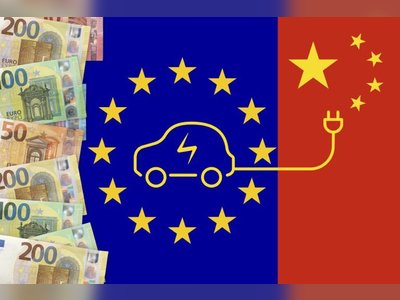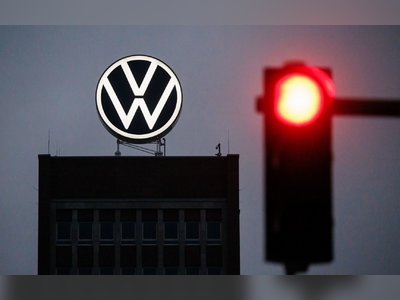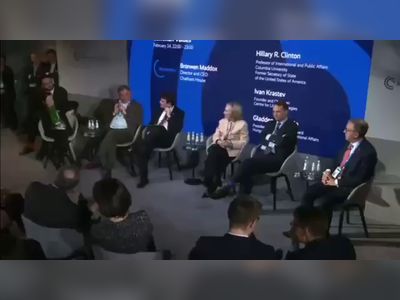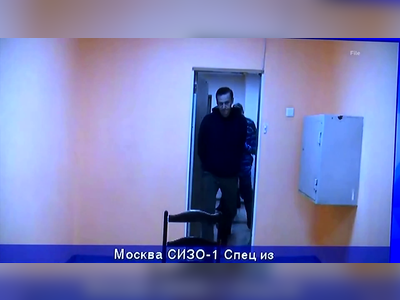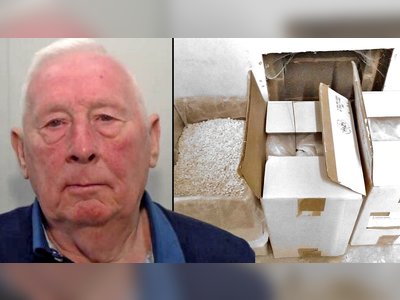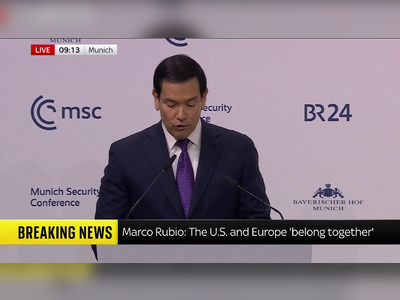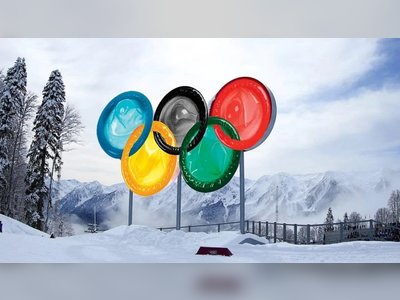
EU offers to scrap 80% of NI food checks but prepares for Johnson to reject deal
Maroš Šefčovič attempts to end tussle at press conference but ‘big gap’ remains to UK’s demands
The EU will scrap 80% of checks on foods entering Northern Ireland from Britain but Brussels officials were “preparing for the worst” amid signs Boris Johnson is set to reject the terms of the deal.
Maroš Šefčovič, the EU’s Brexit commissioner, also announced that customs checks on manufactured goods would be halved as part of a significant concession to ease post-Brexit border problems.
He said he would meet David Frost, his UK counterpart who has demanded a scrapping of the entire Northern Ireland protocol, on Friday as he sought to bring an end to a month-long tussle.
“I hope with a constructive spirit we indeed could be in the home stretch, and I would be very happy if we can start the new year with new agreements,” Šefčovič told a press conference in Brussels as he presented four papers on his “new model” for the protocol.
An appeal was made for pragmatism from Johnson, with Šefčovič insistent that he remained positive. But the chances of a compromise appeared low.
Frost told the House of Lords he did not have any “red lines” going into the new negotiation with the European commission but repeated his belief that a new protocol should be agreed without a role for the European court of justice (ECJ) as an arbiter of EU law in Northern Ireland. He told peers that the question of the UK’s sovereignty over Northern Ireland was “fundamental”.
A three-week deadline for talks on the EU’s new proposals has been set. But Šefčovič was adamant the EU would not renegotiate the fundamentals of the protocol which keeps Northern Ireland within the single market, policed by the ECJ, and draws a customs border down the Irish Sea.
Šefčovič said: “It’s very clear that we cannot have access to the single market without the supervision of the ECJ. But I think that we should really put aside this business of the red lines, the business of deadlines, real or artificial, and we should really focus on what we hear from the stakeholders and the people in Northern Ireland, they want us to solve the practical issues.”
An EU official conceded there was a “very big gap” between Frost’s demands and the proposals on the table. “Primarily, it’s a call for the UK to be realistic,” the official said. “Focus on providing certainty, stability and predictability rather than focus on these high-level constitutional issues.
“We think that renegotiating the protocol would create uncertainty. And that’s the opposite of what we need … There’s a reason why negotiations on the protocol lasted for three and a half years. And we think we’ve reached the only workable solution.”
A UK government spokesperson said: “We are studying the detail and will of course, look at them seriously and constructively. The next step should be intensive talks on both our sets of proposals, rapidly conducted, to determine whether there is common ground to find a solution.
“Significant changes which tackle the fundamental issues at the heart of the protocol, including governance, must be made if we are to agree a durable settlement which commands support in Northern Ireland.”
The EU proposals on goods and medicines represents a significant concession for Brussels, which had previously called for the UK to align with the bloc’s food and plant health rules to avoid checks between Great Britain and Northern Ireland.
While the EU continues to say checks and controls in the Irish Sea border are necessary to avoid a hard border on the island of Ireland, and represent the Brexit choices made by the British government, officials admitted more clearly than ever before that its implementation had created “unintended consequences” for businesses and consumers. “It goes far beyond tinkering around the edges,” said one official.
The EU is now proposing a “bespoke Northern Ireland specific solution”. This means checks would be removed on 80% of lines on supermarket shelves, with carefully labelled and sourced British sausages, the product that became emblematic of the row between the two sides, no longer at risk of being prohibited.
In a further concession, trucks carrying mixed loads – for example a lorry bound for a Northern Irish supermarket laden with meat, dairy and confectionery – would only have to provide one health certificate for each journey rather than one for each product line.
Customs paperwork will be hugely reduced through a more generous definition of goods deemed “not at risk” of entering the EU single market via the Irish border.
In exchange for looser controls, the UK will have to ensure border inspection posts are up and running and that EU officials have access to real-time data on checks.
These are existing requirements of the protocol and EU officials say they have seen progress on access to databases, having previously accused the UK of foot-dragging.
Some market checks will also be intensified to prevent British goods being smuggled into the EU single market through Northern Ireland. Products for the Northern Irish market would have to carry individual labels, rather than labels on pallets.
“We are proposing a different model,” said an EU official. “Fewer checks on the one hand, but more guarantees in terms of governance, more market surveillance and for this reason reinforced monitoring of supply chains will also be essential.”
However, in Westminster there is a concern that the market surveillance and checks on sources of products will be as much of a problem for traders as the status quo. There was no solution contained within Šefčovič’s proposals to the issue of pets travelling from Northern Ireland to the rest of the UK and back.
In response to threats to affordability and availability of generic medicines in Northern Ireland, the EU will waive a requirement that medical manufacturers move out of Great Britain into Northern Ireland. Companies supplying the Northern Irish market can continue to have their supply “hub” in Britain, a privilege not usually afforded to countries outside the EU single market.
Following criticism that the protocol is “undemocratic”, the Northern Ireland assembly, civil society groups and businesses will be invited to take part in “structured dialogues” with the European commission on implementing the hundreds of EU laws that apply in the region, although they will not have any decision-making power.
Maroš Šefčovič, the EU’s Brexit commissioner, also announced that customs checks on manufactured goods would be halved as part of a significant concession to ease post-Brexit border problems.
He said he would meet David Frost, his UK counterpart who has demanded a scrapping of the entire Northern Ireland protocol, on Friday as he sought to bring an end to a month-long tussle.
“I hope with a constructive spirit we indeed could be in the home stretch, and I would be very happy if we can start the new year with new agreements,” Šefčovič told a press conference in Brussels as he presented four papers on his “new model” for the protocol.
An appeal was made for pragmatism from Johnson, with Šefčovič insistent that he remained positive. But the chances of a compromise appeared low.
Frost told the House of Lords he did not have any “red lines” going into the new negotiation with the European commission but repeated his belief that a new protocol should be agreed without a role for the European court of justice (ECJ) as an arbiter of EU law in Northern Ireland. He told peers that the question of the UK’s sovereignty over Northern Ireland was “fundamental”.
A three-week deadline for talks on the EU’s new proposals has been set. But Šefčovič was adamant the EU would not renegotiate the fundamentals of the protocol which keeps Northern Ireland within the single market, policed by the ECJ, and draws a customs border down the Irish Sea.
Šefčovič said: “It’s very clear that we cannot have access to the single market without the supervision of the ECJ. But I think that we should really put aside this business of the red lines, the business of deadlines, real or artificial, and we should really focus on what we hear from the stakeholders and the people in Northern Ireland, they want us to solve the practical issues.”
An EU official conceded there was a “very big gap” between Frost’s demands and the proposals on the table. “Primarily, it’s a call for the UK to be realistic,” the official said. “Focus on providing certainty, stability and predictability rather than focus on these high-level constitutional issues.
“We think that renegotiating the protocol would create uncertainty. And that’s the opposite of what we need … There’s a reason why negotiations on the protocol lasted for three and a half years. And we think we’ve reached the only workable solution.”
A UK government spokesperson said: “We are studying the detail and will of course, look at them seriously and constructively. The next step should be intensive talks on both our sets of proposals, rapidly conducted, to determine whether there is common ground to find a solution.
“Significant changes which tackle the fundamental issues at the heart of the protocol, including governance, must be made if we are to agree a durable settlement which commands support in Northern Ireland.”
The EU proposals on goods and medicines represents a significant concession for Brussels, which had previously called for the UK to align with the bloc’s food and plant health rules to avoid checks between Great Britain and Northern Ireland.
While the EU continues to say checks and controls in the Irish Sea border are necessary to avoid a hard border on the island of Ireland, and represent the Brexit choices made by the British government, officials admitted more clearly than ever before that its implementation had created “unintended consequences” for businesses and consumers. “It goes far beyond tinkering around the edges,” said one official.
The EU is now proposing a “bespoke Northern Ireland specific solution”. This means checks would be removed on 80% of lines on supermarket shelves, with carefully labelled and sourced British sausages, the product that became emblematic of the row between the two sides, no longer at risk of being prohibited.
In a further concession, trucks carrying mixed loads – for example a lorry bound for a Northern Irish supermarket laden with meat, dairy and confectionery – would only have to provide one health certificate for each journey rather than one for each product line.
Customs paperwork will be hugely reduced through a more generous definition of goods deemed “not at risk” of entering the EU single market via the Irish border.
In exchange for looser controls, the UK will have to ensure border inspection posts are up and running and that EU officials have access to real-time data on checks.
These are existing requirements of the protocol and EU officials say they have seen progress on access to databases, having previously accused the UK of foot-dragging.
Some market checks will also be intensified to prevent British goods being smuggled into the EU single market through Northern Ireland. Products for the Northern Irish market would have to carry individual labels, rather than labels on pallets.
“We are proposing a different model,” said an EU official. “Fewer checks on the one hand, but more guarantees in terms of governance, more market surveillance and for this reason reinforced monitoring of supply chains will also be essential.”
However, in Westminster there is a concern that the market surveillance and checks on sources of products will be as much of a problem for traders as the status quo. There was no solution contained within Šefčovič’s proposals to the issue of pets travelling from Northern Ireland to the rest of the UK and back.
In response to threats to affordability and availability of generic medicines in Northern Ireland, the EU will waive a requirement that medical manufacturers move out of Great Britain into Northern Ireland. Companies supplying the Northern Irish market can continue to have their supply “hub” in Britain, a privilege not usually afforded to countries outside the EU single market.
Following criticism that the protocol is “undemocratic”, the Northern Ireland assembly, civil society groups and businesses will be invited to take part in “structured dialogues” with the European commission on implementing the hundreds of EU laws that apply in the region, although they will not have any decision-making power.
AI Disclaimer: An advanced artificial intelligence (AI) system generated the content of this page on its own. This innovative technology conducts extensive research from a variety of reliable sources, performs rigorous fact-checking and verification, cleans up and balances biased or manipulated content, and presents a minimal factual summary that is just enough yet essential for you to function as an informed and educated citizen. Please keep in mind, however, that this system is an evolving technology, and as a result, the article may contain accidental inaccuracies or errors. We urge you to help us improve our site by reporting any inaccuracies you find using the "Contact Us" link at the bottom of this page. Your helpful feedback helps us improve our system and deliver more precise content. When you find an article of interest here, please look for the full and extensive coverage of this topic in traditional news sources, as they are written by professional journalists that we try to support, not replace. We appreciate your understanding and assistance.



